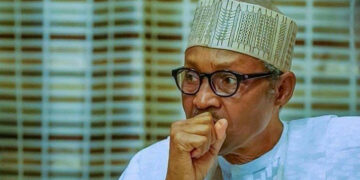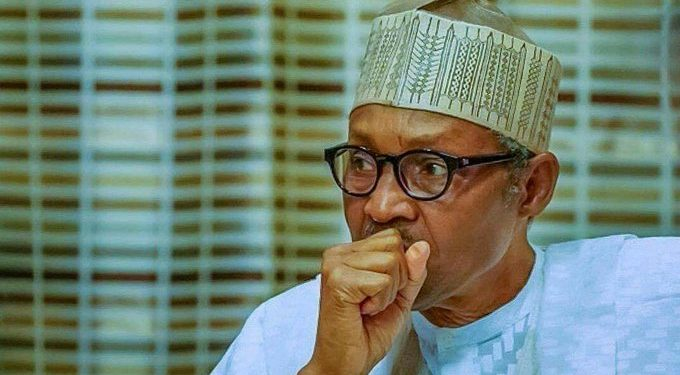By Senator Sola Akinyede.
Nigeria is in dire economic straits and in one of its worst economic crises in its history as recently warned by the World Bank and the International Monetary Fund last December. It is so bad that in November the Budget Office stated that 428 of Nigeria’s over 600 agencies would be unable to pay November salaries. In 2015, in order to reduce waste and cost of governance, the Oransanye report recommended the scrapping and merger of many of these federal agencies.
For more than 5 years, the Buhari administration continues to fund these mostly moribund, obsolete, ineffective, duplicated, unnecessary agencies many replete with mismanagement and corruption. How can a country that houses 87 million extremely poor people, the highest in the world, be financing 14 Space agencies? This is a picture of President Buhari’s 2021 budget proposals for a few of these agencies many with personnel costs (P) ranging from 90% to 100% of their total budgetary allocations. Quite a number of these agencies were able to get the National Assembly to further pump up their budgetary allocations in the 2021 Appropriation Act, writes Senator Sola Akinyede
Aerospace
National Space Research And Development Agency Abuja-N5.6b
Defence Space Administration Abuja -N2.8b
Nigerian Communications Satelite Ltd Abuja -N7b
Centre For Satellite Technology Development Abuja- N2.1b
National Institute Of Space Engineering Abuja – N577m
Atmospheric Research Centre Ayingba Kogi State- N1b (P-N963m)
Centre For Space Transport Propulsion Epe Lagos State-N2.066b (P-N1.93b)
African Regional Centre For Space Education Ife Osun State-N1b ( P-N933m)
Advanced Space Technology Application Laboratory Uyo Akwa Ibom State-N896m (P-N806m)
Centre For Basic Space Science, Nsukka –N1.4b (P-N1.3b)
Centre For Geodesy And Geodynamics Toro Bauchi State- N1. (P-N1.2b)
Advanced Space Technology Application Kashere, Gombe State-N391m
Aerospace Engine Laboratory Oka Ondo State-N447m (P-N426m
Advanced Space Technology Application Lantang Plateau State – N257m
Advanced Unmanned Aerial Laboratory Uburu Ebonyi State-N660m
Advanced Aircraft Engineering Laboratory Gusau Zamfara State-N369m (P-N347m)
Remarks-With Many So Impoverished, Should Space Be Our Priority? Even If It Is, What Are We Doing With Five National Space Agencies In Abuja And Ten Rural Space Agencies Located In The Backwaters With Little Or No Electricity?
Energy
Nigeria Nuclear Regulatory Authority Abuja -N13b (P-N11.9b)
Atomic Energy Commission Abuja -N2.9b
Energy Commission Of Nigeria Abuja-N5.8b
NIGERIA ELECTRICITY REGULATORY COMMISSION ABUJA-Undisclosed
Nigerian Electricity Liability Management Ltd Abuja -N1.4b
Nigerian Electricity Management Services Agency Abuja-N2.8
Nigerian Bulk Electricity Trading Plc Abuja –N152b
National Power Training Institute Abuja-N1b
Remarks -Nuclear and Atomic power in a heavily terrorised State and six regulatory and management agencies while we struggle with electricity?
Science and Technology
National Agency For Science And Engineering Infrastructure Abuja-N4.3b
Engineering Materials Development Institute Akure-N1.2b
Projects Development Institute (Proda) Enugu-N8.5b
National Office Of Technology Acquisition And Promotion Abuja-N2b
National Board For Technology Incubation Abuja –N1.55b
National Centre For Technology Management- N929m
National Information Technology Development Agency – N10.8B (2017 Budget)
National Research Institute For Chemical Technology Zaria-N3.3b
Nigerian Institute For Leather And Science Technology-N1.9b
Nigerian Building And Road Research Institute Lagos-N20b
National Biotechnology Development Agency Abuja-N2.9b
National Biosafety Management Agency Abuja-N1.24b
National Automotive Design And Development Council-N500m
Remarks -13 national agencies for science and technology Impact?
Petroleum
Petroleum Training Institute Abuja-N14.8b
Federal University Of Petroleum Resources Effunrun-N62b
National College Of Petroleum Studies Kaduna-Undisclosed
Petroleum Technology Development Fund(Books/Conferences. Spent N120b No-Impact -Neiti)
Petroleum Products Pricing Regulatory Agency-N11.2b(2020 Budget) P-N11.2b
Petroleum Equalisation Fund- Undisclosed
Remarks-Current budgetary allocations of PTDF, PPPRA and PEF are unknown. As prices of petroleum products are now market-driven following subsidy removal, the President does not need to wait for the PIB Bill before winding up these three agencies some of which were still trying to engage new staff.
Transport
Nigerian Institute Of Transport Technology Kaduna-N16b
Federal University Of Transportation, Daura Kastina State (Chinese ‘Gift’ To Be Funded By Fgn).
Education
National Institute For Education Planning & Administration-N1.1b
National Education Research And Development Council-N1.5b
Mass Literacy Council-N2.3b
Nomadic Education Council-N1.3b
National Commission For College Education-N1.88b
National Board For Technical Education-N1.8b
National Board For Arabic And Islamic Studies –N9b.
Remarks- These agencies could easily be domiciled as directorates in the ministry of education.
Information and Culture
National Institute For Culture Orientation-N2.5b
National Council For Arts And Culture-N2.3b
Centre For Black Arts And Civilizations-N743m
National Tourism Development Corporation-N2.5b
National Institute Of Hospitality And Tourism-N2.8b
Nigerian Film Corporation-N1.2b
National Film And Video Censor Board-1.2b
Agriculture
National Agriculture And Land Development Authority-N10.1b
National Institute For Fresh Water Fish, New Bussa-N1.4b
National Agriculture Seed Council-N2.2b
National Agriculture And Quarantine Service-N7.5b
Water
National Water Resources Institute Kaduna-N1.9b
Nigeria Integrated Water Management Commission –N885m
National Inland Waterway Authority-N7.3b
12 RIVER BASIN DEVELOPMENT AUTHORITIES –N63B (Many Involved In Rural Electrification/Solar
Border
National Boundary Commission-N3b
Border Communities Development Agency-N9.3b
Questionable Agencies
Public Complaints Commission- N5.2B (P-N5.2B) (Done Nothing For 46 Years, Duties Now By NHRC
Nigeria Office For Trade Negotiations-N3.8b
National Productivity Centre-N6.14b
Infrastructure Concessionary And Regulatory Commission-N1.5b
New Partnership For African Development-N1.08b
Fiscal Responsibility Commission-N506m
Cooperative Information Network –N1.15b (P-N1.19b)
The budgets for these 70 agencies out of the odd 300 agencies recommended for positive action by the Oransanye Report are in excess of N500 billion. This means that since President Buhari was elected more than five years ago, at least N2 trillion has been wasted on these 70 agencies, and the amount that would have been spent on the 300 agencies will be in the region of 8 trillion naira over this period ($26 billion dollars at N306 to the USD rate over that period.
Between June 2015 when Nigeria’s external debt was $11.4 billion and June 2020 the Buhari administration accumulated $22 billion in foreign debts currently at $31 billion from a low of $5.5 billion after paying off the Paris Club in 2005. Effectively the $22 billion was borrowed to fund these 300 odd federal agencies that should have been scrapped or merged in 2015. The World Bank has just agreed to give us another loan of $1.5 billion after the IMF gave us a loan of $3.4 billion in April 2020. The Buhari government has also borrowed domestically to fund payment of allowances to the Executive, Legislature and Judiciary and we are currently spending N600 billion every year to service our debts. In the first four years of his administration President Buhari borrowed more money than former Presidents Olusegun Obasanjo, Umaru Yar’Adua and Goodluck Jonathan combined borrowed in 16 years and yet the economy continues to deteriorate, there is little or no infrastructure to show for it, poverty continues to envelope more, and of course, security is deteriorating because the loans are being used to finance wastes. Why is this government frittering away the future of the next generation to fund wastes with a significant proportion lost to corruption? Why did President Buhari present to the National Assembly for the sixth time the budgets of these agencies that continue to constitute a drain on our national resources? Why can’t the President channel the resources saved from these wastes to health, infrastructure, youth unemployment and poverty alleviation?
We have a degenerating financial crisis, a deteriorating security crisis and an ominous socio-economic crisis. The World Bank on the 10th of December 2020 warned that if we continue with our business as usual approach to governance, our economy will go back to where it was 40 years ago and will ‘unravel’ – a diplomatic euphemism for a collapse. The authoritative Financial Times of London in its December 22 2020 edition says Nigeria is ‘teetering on the brink of becoming a failed state –a country where the government is no longer in control ‘. At number 14 out of 174 countries in the Fragile States Index and with the government hopelessly helpless with Boko Haram in the North East, bandits and kidnappers in the North West, and sporadic kidnappers in the South, the opinion of the Financial Times should not be a surprise.
But a day after the Financial Times Op-ed, the presidency rushed to distribute a statement around newsrooms raising an alarm about a ‘smear campaign by disgruntled politicians portraying the President as not being in charge of the country’. Portraying? Are the World Bank and Financial Times disgruntled politicians? Contrary to the understanding of Nigerians when they are in power, the word disgruntled simply means unhappy, dissatisfied or displeased with the state of something. Nigerians in the North East, North West as well as the youths in urban parts of the country are justifiably disgruntled.
With the President himself saying that only God can effectively supervise the Nigeria- Niger border, is this not a tacit admission of loss of control since God has never made it His habit to come down himself to police the borders in countries? For the second year running, Nigeria has come outright last in the world in the index of 157 countries committed to reducing inequality. The index by Oxfam and Development Finance International declared that Nigeria’s budget on health, education and social protection is ‘shameful ‘.The diversion of resources to these wasteful and unproductive agencies as is obvious in the 2021 budget together with the disproportionate allowances and perquisites to the elite in the Executive, Legislature and the Judiciary is the reason for this inequality, for Boko Haram, for banditry and kidnapping and for #EndSARS. Thinking it can borrow its way out of bad governance, this government is simply digging from inside a hole and the country continues to sink deeper into a socio-economic morass.
To many objective passengers in the ship of state called Nigeria, the impression is that with little or no maintenance checks and the aircraft on autopilot, either the pilot lacks the required certification to operate the aircraft or/and has become comatose or at best is sleeping. The copilot has been sent out of the cockpit, members of the cabin crew are doing as they wish with some stealing from the passengers, while some pirates are threatening to throw out passengers who refuse to hand over their possessions. The waste being perpetrated by the Buhari administration, and its inability to contain systemic, endemic and structural corruption is the reason things are deteriorating.
Rather than blaming disgruntled politicians, the politicians in the cockpit who are not disgruntled including the governors running helter-skelter in search of 2023 should wake up the pilot and ask him to sit up so he can see what is happening after which he can pray to God to give him the wisdom to understand what needs to done and the will and courage to execute in accordance with the powers vested in him by section 5 of the Constitution.
Senator Sola Akinyede was in the Senate from 2007-2011.



































